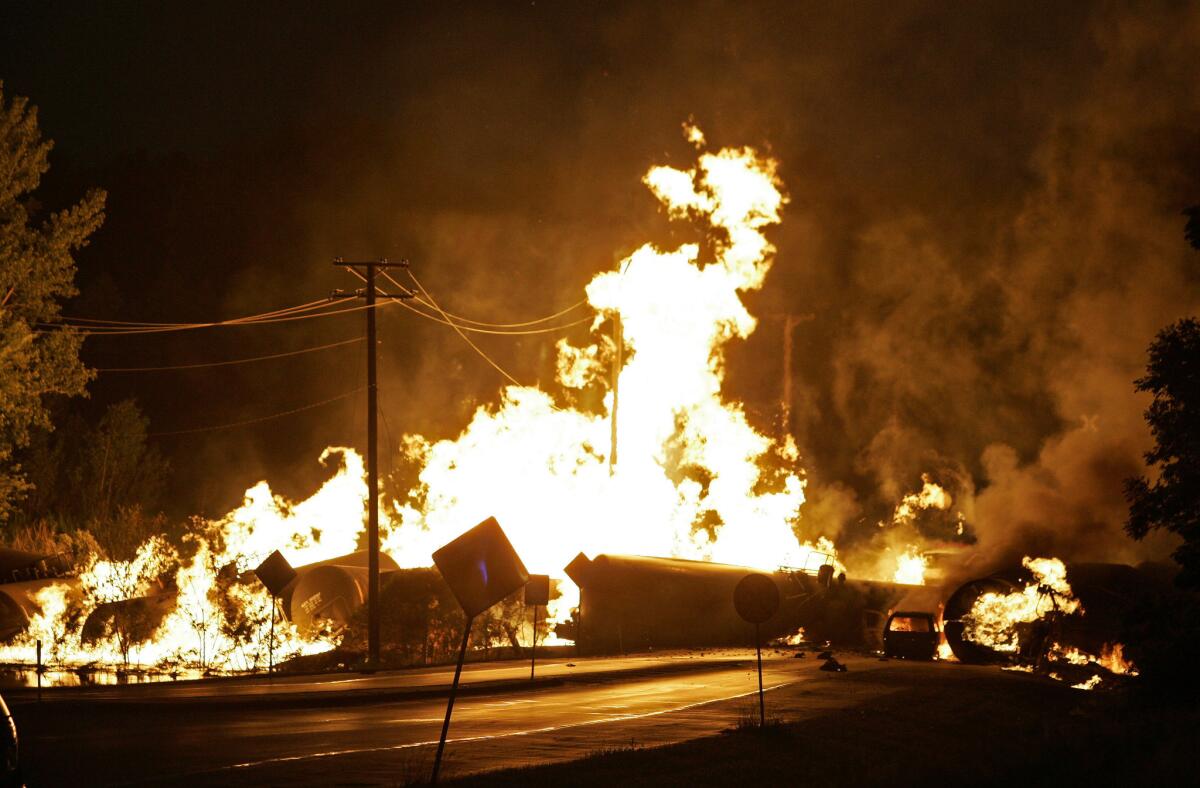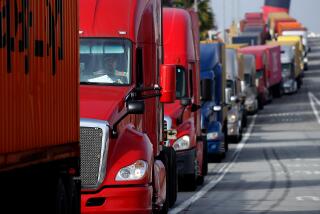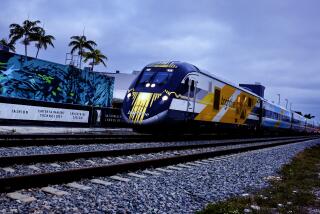Proposed oil train safety rules include lower speeds, improved braking

The Transportation Department on Wednesday issued proposed rules to upgrade the safety of trains carrying crude oil, following half a dozen explosions that occurred in the last year after derailments in the United States and Canada.
The proposal would reduce the permitted speed of trains carrying crude, improve braking systems, require better information about the flammability of crude and improve tanks cars, making them more resistant to leaks after accidents. It is also likely to force the retirement of tens of thousands of tank cars.
The regulatory action generally reflects voluntary agreements that the federal department made with the railroad industry in February, but could go much farther in calling for stricter rail speeds and a higher number of tank cars that should be taken off the railways because they would not meet the regulations, among other issues.
The department began drafting the new rules after the catastrophic accident a year ago in Lac-Megantic, Quebec, in which a train carrying 72 tank cars of flammable crude crashed into the small Canadian town’s center and killed 47 people. Other derailments and fires occurred in North Dakota, Alabama, Virginia and elsewhere.
The Transportation Department noted the growing public risk involved in crude movements, which it said had grown to 415,000 rail cars last year from just 9,500 in 2009, often traveling more than 1,000 miles from the new Bakken oil fields in North Dakota.
“The safety risk presented by transporting Bakken crude oil by rail is magnified both by an increasing volume of Bakken being shipped … throughout the U.S. and the large distances over which the product is shipped,” the agency said in a statement.
The tankers, known as T-111 cars, have become the focal point in demands for improved safety, though tank car owners and the oil industry have asserted that they are not the cause of the accidents and have called on railroads to keep their cars in operation.
But communities where oil trains rumble through daily are putting pressure on the industry and its regulators. One Illinois mayor branded the T-111 cars “Pintos on rail,” referring to the infamous Ford car model of the 1970s with fuel tank explosion problems. This prompted a stiff rebuttal by industry officials.
“The tank cars operate safely every day of the year,” Thomas Simpson, president of the Railway Supply Institute, said in a recent interview.
The proposal offers three potential options for improving tank cars, including one that calls for thicker steel shells that could force the retirement of thousands of existing tank cars. The proposal would phase out the most dated tank cars within two years.
Under the least costly option, tank cars would have to comply with 2011 industry standards. Under a second option, they would be constructed under the earlier standards but would be required to have improved brakes and roll-over protection systems.
The most far-reaching option calls for cars to be built with 9/16-inch shells rather than the existing 7/16-inch shells. The thicker steel would add significant weight to each car, potentially reducing the amount of crude the car could carry.
In any case, the outcome is likely to force the retirement of at least 35,000 of the nation’s estimated 98,000 tank cars that haul flammable liquids, according to Brigham McCown, former chief of the Pipeline and Hazardous Materials Safety Administration.
In addition to the tank-car standards, the regulations would impose new speed restrictions on trains carrying crude. One option would reduce oil train speeds to 40 mph nationwide, while two others would impose limits only in certain urban areas. The speed limits could broadly affect all freight movements because the oil trains would effectively hold back other traffic, rail experts have said.
The speed restrictions would have two benefits: reducing the probability of a derailment and cutting the potential for tank cars to leak if they derail. But the massive explosion that occurred in December in Casselton, N.D., may show that such speed limits do not guarantee that explosions would not occur. In that accident, a train carrying crude at 42 mph struck another train that had derailed moments before.
The Transportation Department also released a report that showed Bakken crude is more flammable than crude from other regions. The finding explains why the train derailments not only resulted in fires but massive explosions.
The new rules will undoubtedly increase the cost of transporting crude, which is paid for by the oil and refining industry, which could mean higher prices on the products they sell.
On average, it now costs about $12 to $15 to ship a barrel of oil by rail. By comparison, it costs about $5 per barrel by pipeline, according to estimates by regulatory experts. A sharply higher cost for shipping the oil could make it less competitive, they say.
Despite the higher costs of shipping by rail, the refining industry has increasingly turned to trains. The trains allow refiners more flexibility than pipelines in purchasing the cheapest crude.
The Assn. of American Railroads, which had called on the government to require safer tank cars, generally applauded the proposed rules in a statement. The Railway Supply Institute, which represents vendors of rail equipment, issued a narrow statement that did not immediately raise objections to the proposals, but said the trade group would closely study them.
Some environmentalists said the rules would do little to improve safety.
“Today the Obama administration announced weak new standards for high-hazard flammable trains that give the oil industry a license to threaten the safety of millions of Americans and leave communities and emergency responders holding the bag,” said Matt Krogh of ForestEthics.
But Sen. Charles E. Schumer (D-N.Y.) endorsed the proposal, saying, “These desperately needed safety regulations will phase out the aged and explosion-prone DOT-111 tanker cars that are hauling endless streams of highly flammable crude oil through communities across the country and in New York.”
ralph.vartabedian@latimes.com
More to Read
Start your day right
Sign up for Essential California for news, features and recommendations from the L.A. Times and beyond in your inbox six days a week.
You may occasionally receive promotional content from the Los Angeles Times.







